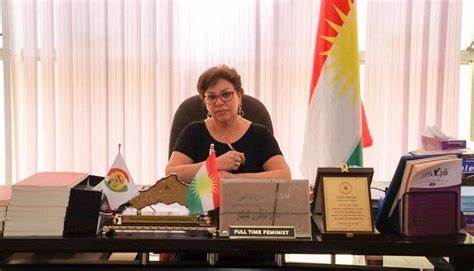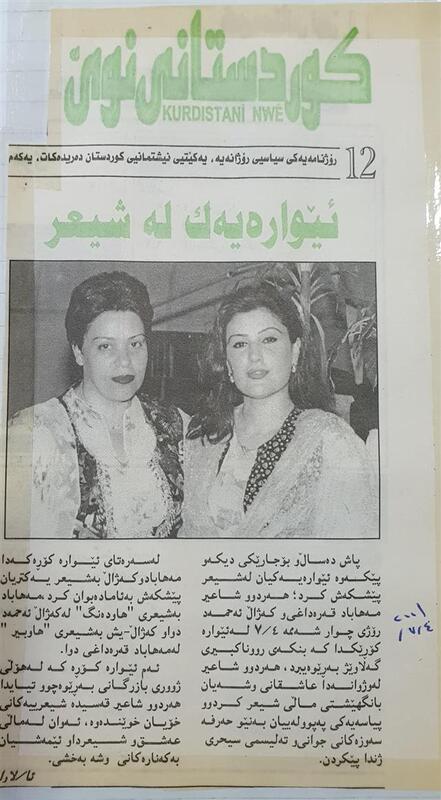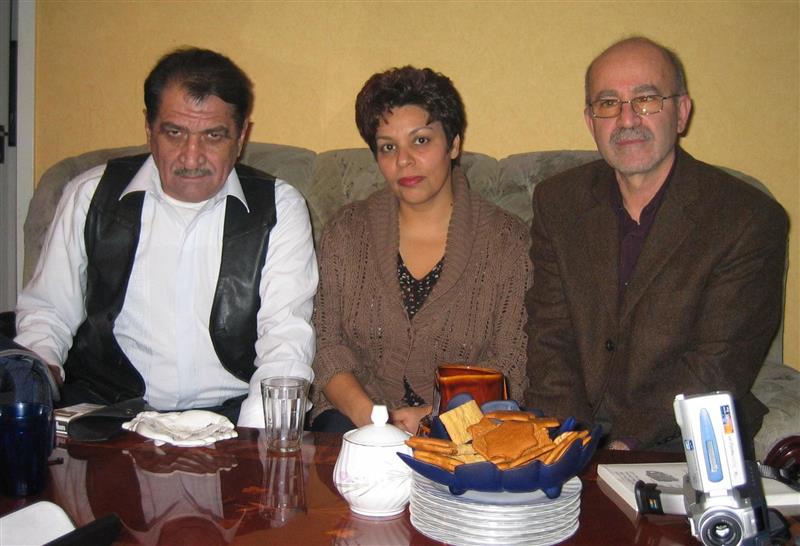Writing a short article about a writer with many works is difficult. When her writings and works have entered different fields of thought and innovation, it is necessary to discuss the different works. Ms. Mahabad Qaradaghi is one of the authors whose works cover many different fields. In this article, I try to discuss a common point in some of Mahabad Qaradaghi's writings and look at some of her writings and review them. The common point I want to mention in some of her writings is women and women's problems. As mentioned, the field of activities of Ms. Mahabad Qaradaghi is diverse. She has been active in the field of women's rights and social problems and have written about them. This is reflected in the various articles she has written in this field. In addition, in the few books she has written about women's issues, she has written about women's rights and Kurdish women's issues.
Her first writing was on the subject of "Releasing History". The book scientifically and methodically discusses women, women's struggles and activities, feminist movements, and Kurdish women's problems in ten sections. It depicts the character of women from the matriarchy system and brings this problem to the present day; with all the changes that have occurred in the Kurdish people's understanding of women. She explains how the cultural view of women among Kurds was formed and interprets its various aspects.

In addition, she wrote a book called "Sharafnama" on the issue of killing women on the pretext of honor. On the other hand, as the editor-in-chief of "Shikar" magazine, which is owned by the Kurdistan Women's Union, she devoted all its issues to looking at social issues and reading books and articles that either creatively raised women's issues (such as novels and poetry) or the intellectual and social theories in which these discussions are prominent, or the problems of national women are discussed in an exemplary manner. It was this courageous and at the same time rights-oriented being that had often and strongly criticized her, like all the women she wrote about and spoke out against; both in writing and in the women's union, she faced patriarchal views and this problem did not leave her and her works and positions until the last days of her life and even after her death.
But above all, Mahabad Qaradaghi has always been a serious poet of south Kurdistan. A loud and strong poetic voice that did not stop writing poetry. Although devoting much of her time and energy to women's issues may have kept her away from the poetic fields.
The name of Mahabad Qaradaghi reminds us of a time when our generation read “The Mountain is a Cornfield” in universities and was pleased with her ability to create different images and expressions compared to other Kurdish male poets; pleased that this is another brave and feminine voice in Kurdish poetry. This work of Mahabad was not only a voice but also one of the serious voices of women's poetry that widely distinguished itself from the male voices of poetry. Although the features of her attitude were obvious, in her later works, however, Mahabad not only sought to find a different atmosphere for expression but also became a traveler on a path that gradually became an attitude and thought that overshadowed the text of her novels, poems, and research. This way of thinking was to describe the presence of women in society in general and the presence of Kurdish women in the social structure of the Kurdish nation.

Obviously, devoting oneself to promoting such an idea requires both practical and research fields and cannot be implemented only with poetic attitudes, feelings, and views. She wanted to put those few areas to the service of that thought as much as she could. How successful she has been in her practical field and what she has done or not depends on studying the activities of the bases in which she has been active in the South part of Kurdistan. It is only a manifestation of the “Shikar Magazine” context that is an appropriate and important work that can be taken separately. But more than that, let women activists in the South part of Kurdistan evaluate this aspect of Ms. Mahabad's life. Perhaps some of the criticisms directed at her were the price of her Kurdish political position at some sensitive stages of Kurdish life in recent years in the South part of Kurdistan, and the place for this discussion is not here for the reasons I mentioned earlier.
However, two other aspects of her poetry, novels, research, and translations are available to us and we can see in these works the thought that Ms. Mahabad's writing and research has followed. The novel "Fatila" tells some of a nation's misery, political, and social events and shows a female character in that political and social environment. “In Fatila, the novelist has a thorough knowledge of novels, cinema, and theater and has used them in narrative techniques and has been able to tell the time of the event and the uprising through her characters,” Dr. Shukrya Rasul said.
In "A Year in Hell", Mahabad again writes on the narrative style, but then the narrative in the context of memory. The character of that memory is herself. A self in her forties. A woman is telling a story in prison. She tells herself about all the pain and suffering that everyone has in prison, but how much more so for women. She says she has done so as opening a new path. The remark in the introduction to her book on the reason for her sober reminiscences is striking. She says she will hit three targets with the arrows of these memories:
"The first is to break the thick wall that the Ba'athists built in my mind with torture in prison.
Two, breaking the tradition that memoirs are written in old age.
Third, breaking the silence of women about their private lives and biographies. Opening the door for women in the public sphere of society to write their memoirs without hesitation about life moments that traditionally may have been considered shameful.”









